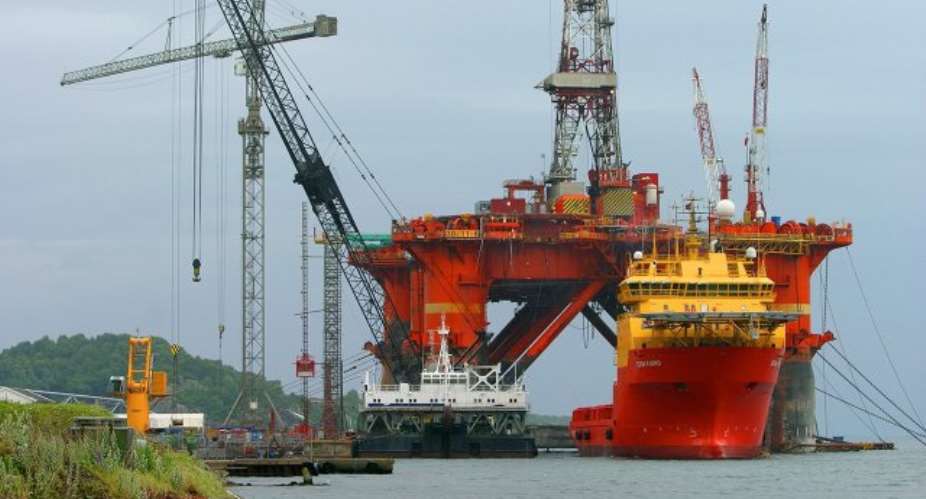The Chief Executive Officer of the National Petroleum Authority (NPA), Hassan Tampuli said the petroleum sector had contributed over GHS86 billion to Ghana’s GDP.
He says this represents an average of about 8% per annum in the period 2013 to 2018.
These successes, he explained, were achieved despite the many challenges the petroleum industry faces.
Some of the challenges he enumerated included “smuggling via unapproved offshore routes, dumping of Gasoil declared for sale to foreign vessels at local filling stations, under-declaration and non-declaration of products lifted at depots; diversion of subsidized social products such as premix fuel, as well as fraudulent freight claims from some transporters and siphoning LPG from BRVS into surface tanks at illegal LPG tank”.
These “nefarious activities” he added, cost Ghana “about $200million per annum of tax revenue; compromising on product quality at filling stations due to laundering which leads to damage to vehicle engines; and distortion of the national consumption statistics (over 300,000Mt of actual annual consumption was unreported).
He noted that the “Unified Petroleum Price Fund (UPPF) also recorded about USD12million losses per annum”.

In addressing the stated challenges, Mr. Tampuli mentioned that the NPA had “rolled out a series of measures to tackle the problem heads on, in collaboration with the Ghana Revenue Authority, Ghana Navy and other relevant security agencies in the country”, and intensified “digital solutions such as Enterprise Relational Database Management Software, Petroleum Products Marking Scheme and Bulk Road Vehicle Tracking project”.
Mr. Tampuli urged “participants to use this GHIPCON platform to deliberate on the key issues” in the petroleum industry with a “focus on the strategies” needed “in order to achieve the vision of being ‘A Catalyst for Transformation’ together” in line with this year’s theme.
He also assured participants that “the key recommendations” from the conference “will be taken on board in efforts to ensure efficiency in the Ghana petroleum downstream industry”.
The Vice President Dr Mahamudu Bawumia on his part said the petroleum downstream sector had witnessed a significant expansion following government’s deregulation policy.
“This sector has witnessed significant investment and expansion of petroleum products storage and outlet facilities,” he said.
“The investment has been championed by the private sector which is mostly dominated by a growing number of indigenous Ghanaian companies.
“For instance, over the past eight years, the industry has grown from a total of eight (8) Bulk Distribution Companies (BDCs) to 35. The number of Oil Marketing Companies (OMCs) has grown from eight one (81) to one hundred and fifteen (115)”.

Dr. Bawumia also mentioned as at May 2019, there were 19 companies providing support services for the sector in areas such as tank calibration, underground storage tank (UST) and Above Storage Tank (AST) cleaning, Non-Destructive Testing (NDT), amongst others.
The Deputy Minister of Energy, Dr. Amin Adam said government through the Energy Ministry and NPA was taking steps to focus on transforming the petroleum downstream sector from its present state “towards government’s vision of making Ghana a hub for refined petroleum products in the West Africa region.”
—Myjoyonline





 Lay KPMG audit report on SML-GRA contract before Parliament – Isaac Adongo tells...
Lay KPMG audit report on SML-GRA contract before Parliament – Isaac Adongo tells...
 Supervisor remanded for stabbing businessman with broken bottle and screwdriver
Supervisor remanded for stabbing businessman with broken bottle and screwdriver
 NDC watching EC and NPP closely on Returning Officer recruitment — Omane Boamah
NDC watching EC and NPP closely on Returning Officer recruitment — Omane Boamah
 Your decision to contest for president again is pathetic – Annoh-Dompreh blasts ...
Your decision to contest for president again is pathetic – Annoh-Dompreh blasts ...
 Election 2024: Security agencies ready to keep peace and secure the country — IG...
Election 2024: Security agencies ready to keep peace and secure the country — IG...
 People no longer place value in public basic schools; new uniforms, painting wil...
People no longer place value in public basic schools; new uniforms, painting wil...
 'Comedian' Paul Adom Otchere needs help – Sulemana Braimah
'Comedian' Paul Adom Otchere needs help – Sulemana Braimah
 Ejisu by-election: Only 33% of voters can be swayed by inducement — Global InfoA...
Ejisu by-election: Only 33% of voters can be swayed by inducement — Global InfoA...
 Minority will expose the beneficial owners of SML, recover funds paid to company...
Minority will expose the beneficial owners of SML, recover funds paid to company...
 Prof. Opoku-Agyemang has ‘decapitated’ the NPP’s strategies; don’t take them ser...
Prof. Opoku-Agyemang has ‘decapitated’ the NPP’s strategies; don’t take them ser...
